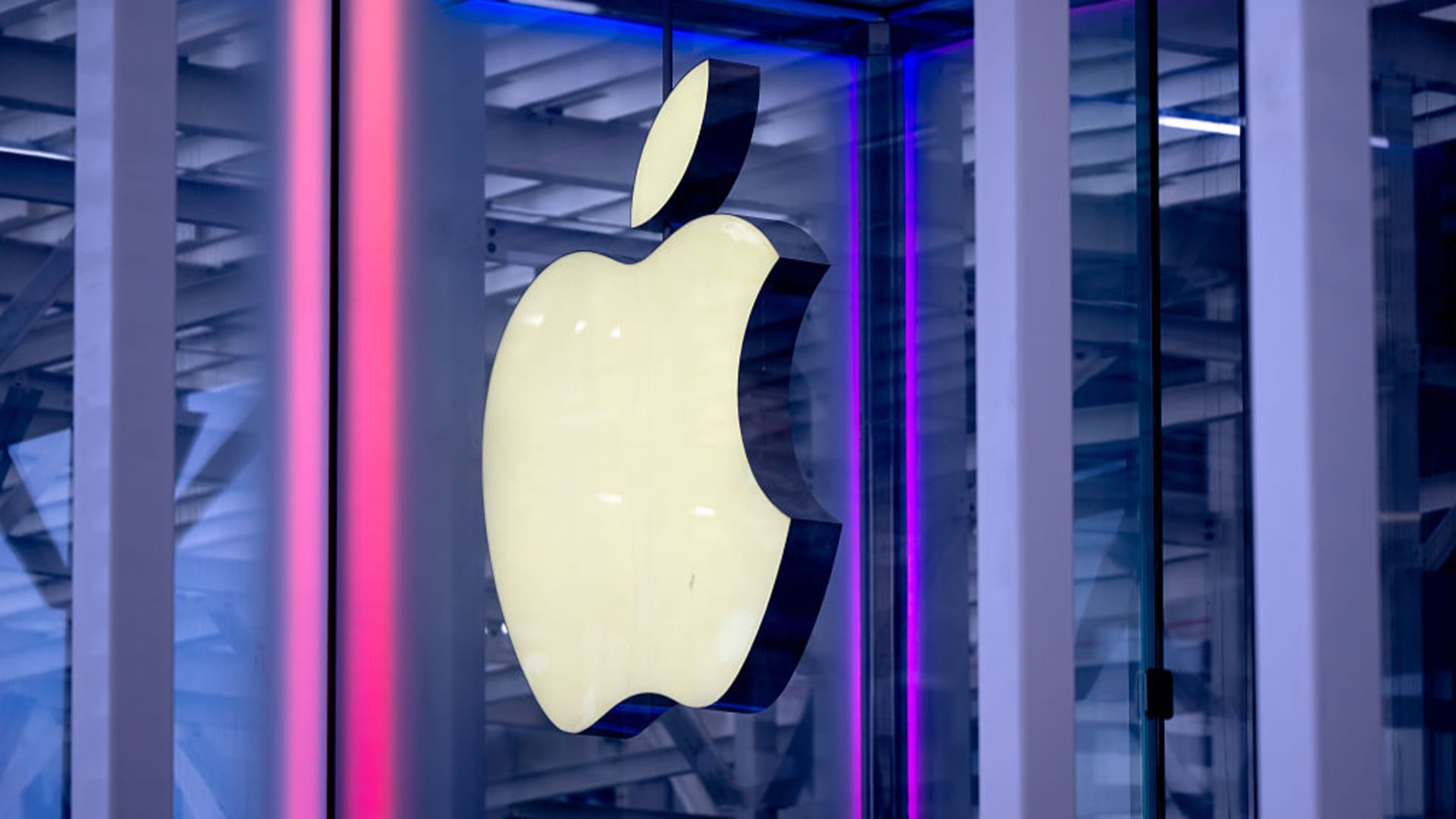Stocks including Apple and Alphabet may be among some of Wall Street’s most overbought stocks — and could be soon due for a pullback, according to one widely used technical metric. The three major averages all climbed higher this week, with the tech-heavy Nasdaq Composite ‘s 3.9% gain leading the way. The S & P 500 rose 2.4%, and the Dow Jones Industrial Average gained 1.4% in the same period. Investors seemed to shake off trade war worries , despite President Donald Trump’s “reciprocal” tariffs coming into effect on Thursday. CNBC Pro used its stock screener tool to identify the most overbought and oversold stocks on Wall Street as measured by their 14-day relative strength index, or RSI. Stocks with a 14-day RSI above 70 are considered overbought, meaning that a pullback could be on the horizon. Conversely, a reading below 30 indicates that a stock is oversold and may be soon due for a potential rebound. The table below shows stocks with an RSI above 70 that have also risen at least 5% week to date, as of Friday morning. With an RSI of 72, one standout name on the list was Apple. The iPhone maker led this week’s rally higher, gaining 13.3% on the week — its biggest weekly gain in more than five years — after announcing it will increase its U.S. investment by $100 billion . This comes after Apple already made a $500 billion commitment in February, taking its total combined investment to $600 billion. Apple’s pledge to increase its domestic production has seemingly made it exempt from Trump’s plans to impose a 100% tariff on imports of semiconductors and chips . On Wednesday, the president said that companies that are “building in the United States” would be spared from the new duties. “We’re going to be putting a very large tariff on chips and semiconductors,” Trump said in the Oval Office on Wednesday afternoon. “But the good news for companies like Apple is if you’re building in the United States or have committed to build, without question, committed to build in the United States, there will be no charge.” This announcement was made after Apple’s third-quarter earnings and revenue, released July 31, once again topped Wall Street’s expectations . Overall revenue grew 10%, marking the company’s largest quarterly revenue growth since December 2021. Alphabet, up 6.5% this week and with an RSI of 75, was another name on the most overbought list. In late July, the company reported a second-quarter earnings and revenue beat , with its overall revenue rising 14% year over year. Alphabet also said it would increase its 2025 capital investments by $10 billion due to “strong and growing demand for our Cloud products and services.” On the other hand, this week’s most oversold names include Airbnb. The table below shows stocks with an RSI below that have also slipped at least 5% week to date, as of Friday morning. Coming in with an RSI of 29, Airbnb fell 5.3% this week. While the company’s second-quarter results came in above expectations , Airbnb is forecasting a weaker second half of the year. In its third quarter, Airbnb guided for revenue to come in the range of between $4.02 billion to $4.10 billion, or a midpoint of $4.06 billion. Analysts surveyed by LSEG were expecting $4.05 billion for the current quarter. Similarly, investors are bearish around The Trade Desk . The ad-tech company cratered 37% this week and now has an RSI of 25. Shares of The Trade Desk plunged 39% on Friday , notching its worst day ever. While the company posted a second-quarter earnings and revenue beat Thursday afternoon, investors grew concerned about rising competition from Amazon in the online ad market and the departure of CFO Laura Schenkein. During an earnings call, CEO Jeff Green also hinted at inflationary pressures stemming from Trump’s tariffs. On Friday, a slew of analysts from shops such as Citi, Wedbush Securities, Bank of America and MoffettNathanson downgraded the stock. “We downgrade TTD to Neutral from Buy as growth is coming in below our expectations and we have less visibility in the near-term growth algorithm,” wrote Citi analyst Ygal Arounian. “We still don’t believe Amazon is the main factor here, but results will inevitably raise more investor questions around the competitive environment and will remain an overhang.”





